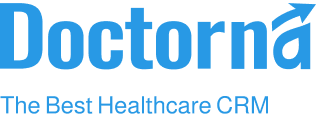In the digital age, Customer Relationship Management (CRM) systems have become essential tools for improving patient engagement, streamlining operations, and delivering personalized healthcare experiences. Designed to help healthcare organizations manage interactions, data, and workflows more effectively, CRMs bridge the gap between patients and providers.
However, while the benefits of healthcare CRM systems are undeniable, their implementation and use also come with significant challenges. From data privacy concerns to system integration issues, many healthcare providers struggle to unlock the full potential of these systems.
In this blog, we’ll explore the major challenges of using CRM in the healthcare industry, the reasons behind them, and how organizations can overcome these hurdles to create a seamless and secure digital care environment.
1. Data Privacy and Security Concerns
One of the biggest challenges in healthcare CRM adoption is ensuring data privacy and security. CRMs store a vast amount of sensitive patient information—medical histories, diagnoses, treatment plans, and billing details—all of which are protected under strict regulations like HIPAA (Health Insurance Portability and Accountability Act) in the U.S. and GDPR (General Data Protection Regulation) in Europe.
A single security lapse can result in serious legal and financial consequences, not to mention a loss of patient trust. Healthcare CRMs are often targeted by cybercriminals due to the high value of medical data on the black market.
Key challenges include:
- Protecting data during storage and transmission.
- Managing user access and authentication.
- Ensuring compliance with ever-evolving data protection laws.
How to overcome it:
Healthcare providers must implement robust encryption, multi-factor authentication, and role-based access control within their CRM systems. Regular security audits, employee training, and compliance monitoring are also critical to maintaining data integrity.
2. Integration with Existing Healthcare Systems
Healthcare organizations use numerous digital platforms—Electronic Health Records (EHRs), billing software, scheduling tools, and laboratory systems. Integrating a new CRM with these existing tools can be complex and time-consuming.
Often, data is stored in isolated silos or incompatible formats, making it difficult for the CRM to access and process information seamlessly. Without proper integration, the CRM cannot provide a unified patient view or support coordinated care.
Common integration challenges include:
- Incompatible data formats or APIs.
- Legacy systems that lack integration support.
- Discrepancies between clinical and administrative data.
How to overcome it:
Adopting interoperable CRM platforms that support modern APIs and healthcare standards like FHIR (Fast Healthcare Interoperability Resources) can greatly ease integration. Partnering with experienced IT teams and vendors ensures smooth data migration and synchronization across systems.
3. High Implementation Costs and Resource Requirements
Deploying a healthcare CRM is not a one-time expense—it requires substantial investment in software, customization, training, and ongoing maintenance. Smaller clinics or healthcare startups may find it difficult to justify these costs, especially when operating on tight budgets.
Moreover, the complexity of healthcare workflows often demands custom CRM solutions, increasing both time and cost. These systems also require continuous support from IT professionals to manage updates, integrations, and cybersecurity protocols.
How to overcome it:
Healthcare organizations should evaluate cloud-based CRM solutions, which offer scalability, lower upfront costs, and reduced infrastructure requirements. Starting with a modular or phased implementation can also help control costs while demonstrating early value.
4. Staff Resistance and Lack of Training
Even the most advanced CRM systems can fail if employees don’t use them effectively. In healthcare, staff members—especially clinicians—often face heavy workloads and may view CRM systems as additional administrative burdens rather than helpful tools.
Resistance to change is common, particularly among those unfamiliar with digital platforms or concerned about data privacy. Without proper training and buy-in, CRM adoption rates remain low, and organizations miss out on the system’s potential benefits.
How to overcome it:
Healthcare leaders must focus on comprehensive user training and change management strategies. Demonstrating how CRM tools simplify workflows, improve communication, and enhance patient outcomes can motivate staff to engage with the system. Involving frontline users in the planning process also promotes ownership and acceptance.
5. Maintaining Data Quality and Accuracy
CRM systems rely heavily on the quality of the data they store. In healthcare, inaccurate or incomplete data can have serious consequences—from misdiagnosed conditions to poor patient engagement. However, ensuring data consistency across multiple departments and touchpoints is a constant challenge.
Data duplication, outdated records, and manual entry errors can compromise CRM functionality and analytics. Without reliable data, the system’s ability to generate meaningful insights and automate workflows diminishes.
How to overcome it:
Implementing data validation rules, automated cleansing tools, and regular audits can help maintain accuracy. Encouraging a culture of data ownership among staff ensures that everyone contributes to keeping the CRM database clean and updated.
6. Regulatory Compliance and Documentation
The healthcare industry is governed by complex regulations concerning data handling, consent, and record-keeping. A CRM system must not only support compliance but also adapt to changes in laws and reporting requirements.
Compliance challenges include managing patient consent for data use, retaining records for legally mandated durations, and ensuring audit trails for every system activity.
How to overcome it:
Organizations should choose healthcare-specific CRM platforms that come with built-in compliance tools and customizable reporting features. Collaborating with legal and compliance experts ensures that CRM configurations align with all local and international regulations.
7. Customization Challenges
Unlike retail or finance, healthcare organizations have unique workflows, patient journeys, and communication needs. Generic CRM solutions often fail to accommodate these complexities without significant customization.
Customization, however, introduces additional costs and time, and if not done correctly, can lead to system inefficiencies or performance issues. Balancing flexibility with standardization is a major challenge.
How to overcome it:
Opt for healthcare-tailored CRM solutions that already include modules for patient engagement, scheduling, referrals, and analytics. Modular systems allow organizations to add features gradually while maintaining system stability and performance.
8. Ensuring System Scalability and Performance
As healthcare organizations grow, so does the amount of patient data. CRM systems must scale efficiently to handle increasing workloads, users, and integrations without compromising performance.
Poorly optimized systems can slow down operations, cause data lags, and frustrate users. This is particularly critical for hospitals and networks with large patient volumes.
How to overcome it:
Choosing a cloud-based, scalable CRM platform ensures that performance remains consistent as data grows. Continuous system monitoring, performance testing, and optimization help maintain speed and reliability.

Final Thoughts
While CRM systems hold immense potential to transform healthcare delivery, their successful implementation requires overcoming several challenges—from integration and data security to staff engagement and regulatory compliance.
Healthcare is a unique industry, and so are its CRM needs. Organizations that plan strategically, invest in the right technology, and focus on user training can turn these challenges into opportunities for innovation.
Ultimately, the key lies in viewing CRM not just as a software tool but as a strategic enabler of patient-centered care. By addressing these challenges head-on, healthcare providers can unlock the full value of CRM—improving efficiency, strengthening relationships, and delivering a truly connected healthcare experience.







